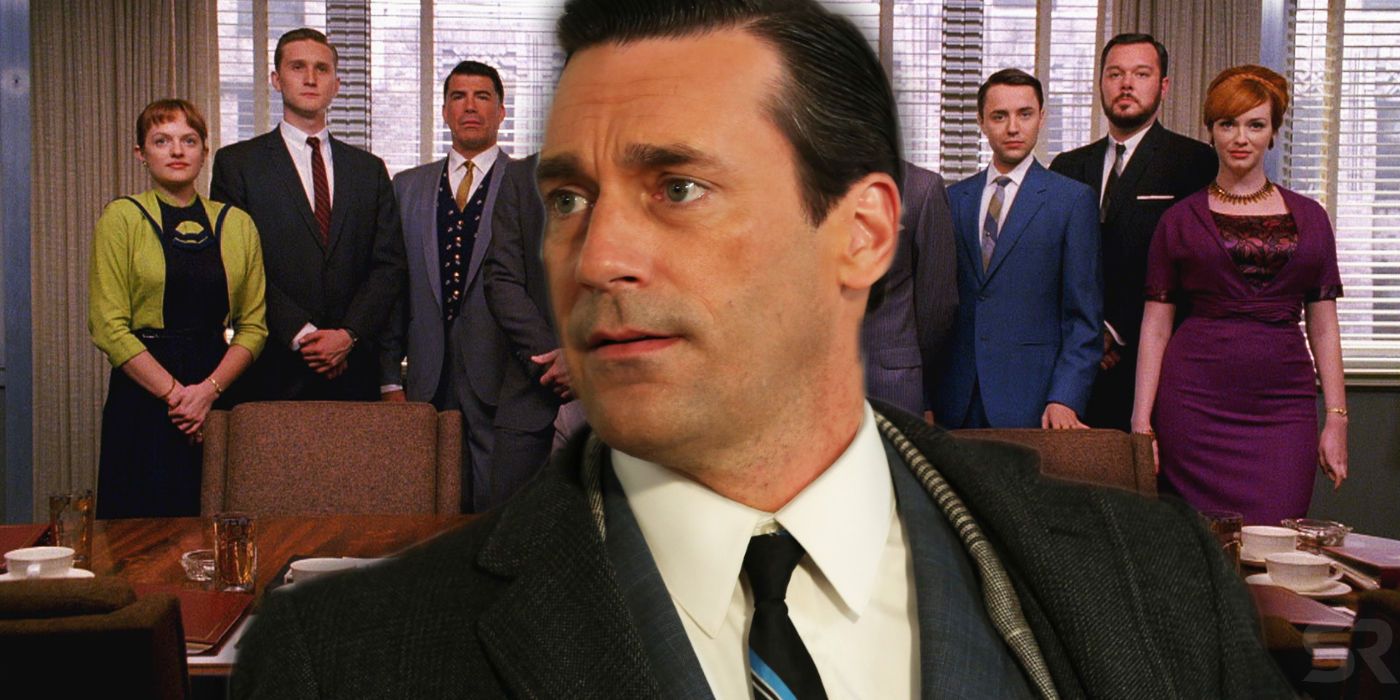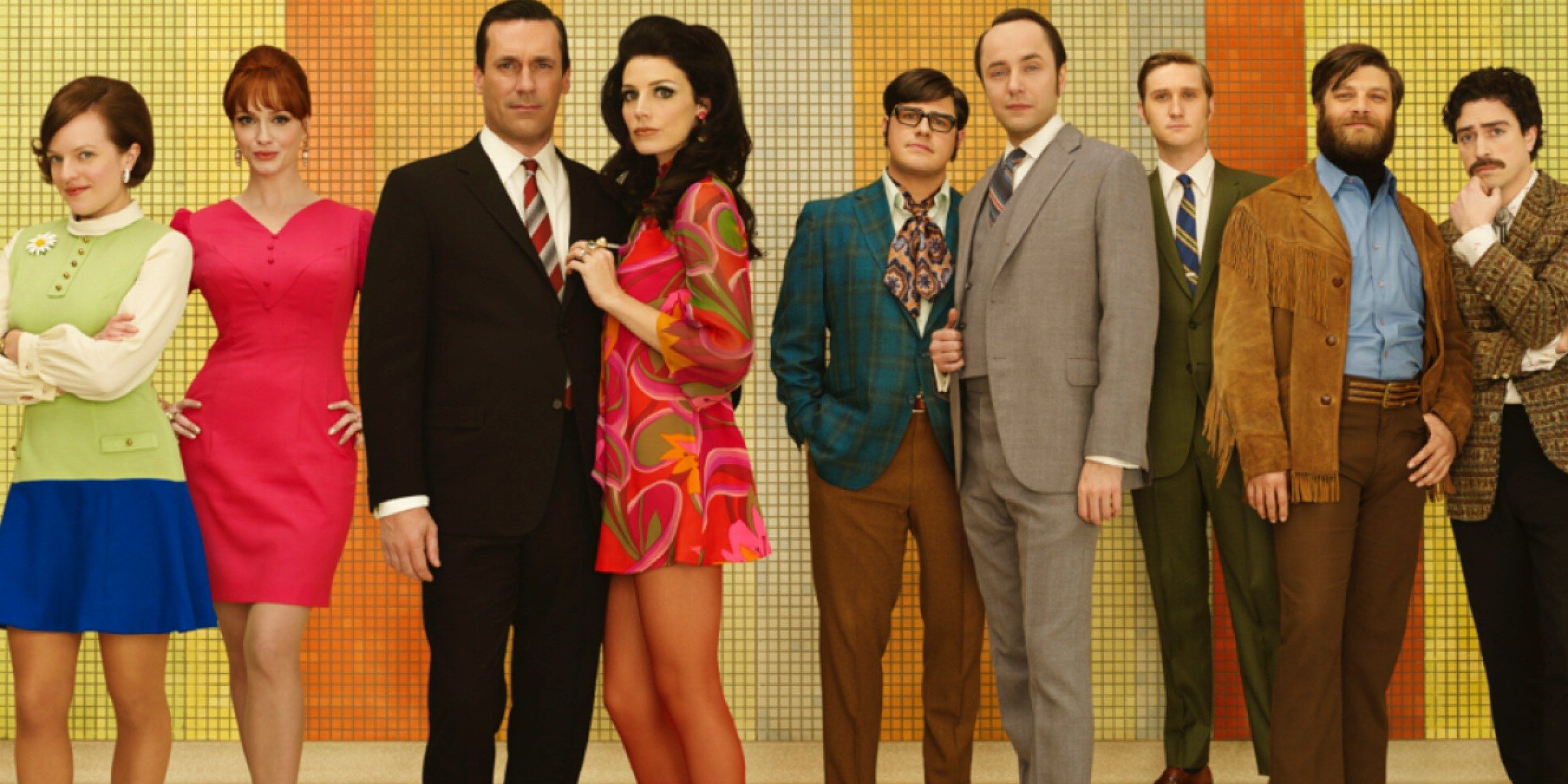Mad Men: The Real Ad Agency That Inspired The Series
Mad Men is accused of overplaying the hedonistic aspects of 1960s advertising culture – but one former executive says the real thing was worse.
You Are Reading :Mad Men The Real Ad Agency That Inspired The Series

Full of day-drinking, chain-smoking, and extra-marital affairs, AMC’s Mad Men is often accused of overplaying the more hedonistic aspects of 1960s advertising culture – but it was actually inspired by events from a real ad agency. Chronicling the rise, fall, and rebirth of Don Draper (Jon Hamm), an ad-man with a secret, Mad Men offered a heady blend of melodrama and film noir, enticing audiences with its decade-spanning deep-dive into life on New York’s Madison Avenue.
Sterling Cooper (later Sterling Cooper Draper Pryce, and later still, Sterling Cooper & Partners) was Mad Men’s base of operations; an advertising agency whose staff and owners made up the bulk of the show’s central cast. While Sterling Cooper is a fictional company, it was inspired by many real-world agencies that operated throughout the 1960s and ’70s. Speaking to The Telegraph in 2015, showrunner Matthew Weiner said, “I spoke to a number of ad executives from that era about the show and seventy per cent of them said I’d got it dead right, [but] one hundred per cent of the women said it reflected their experiences exactly.”
Former advertising executive Jane Maas (said to be the ‘real-life’ Peggy Olson) appeared to agree, and – in an interview with WSJ – went one step further: “Everything they do on Mad Men, we did more of in real life […] more sex, more drinking, more smoking.” In her book, Mad Women: The Other Side of Life on Madison Avenue in the ’60s and Beyond, Maas detailed her experiences working for Ogilvy and Mathers – a major advertising agency operating within the show’s time-frame. Also featured is Young and Rubicam, another agency and the subject of an exchange between Maas and industry veteran Joan Lipton, in which Lipton said: “Of course people partook [in office sex]. But you have to understand I was married, had a three year old son and lived in Connecticut.” When asked whether she was aware of such activity, Lipton replied: “Aware? Heavens, I partook!”

Young and Rubicam is also featured in the show itself when – in the season 5 premiere, “A Little Kiss” – Y&R staff are shown throwing water-filled bags out of the office windows, targeting a group of Black protesters below. This was based on a real incident that occurred in May 1966, and led to demonstrators storming the building to confront the staff. Speaking to NY Times in 2012, Weiner recalled discovering a newspaper article about the event: “I was blown away. I just loved the level of outrage from the participants in the protest.” He went on to say that, “If I had concocted the story, I would have never written that. It was a great capturing of the lack of respect, which is to me what a lot of the show is about.”
Though the show was often praised for its period features, Lola Cherson – former employee at Grey and Davis Advertising in the 60s – spoke with The Atlantic about Mad Men’s inaccuracies, saying: “If you met somebody in an office, if you were dating them, you met away from the office. You weren’t supposed to be dating employees. In a lot of corporations, it wasn’t allowed.” She also referred to the characters’ alcohol intake, saying that while “it’s absolutely true that many executive lunches were 3-martini affairs, […] it’s not true there was liquor in senior partners’ offices.” She did, however, add that, “later in the ’70s, the creative people were growing pot.”
It’s really no wonder that Mad Men appealed to so many people’s fantasies, showcasing a time and industry wherein work and play were often indistinguishable from each other. As always, there is a dark side to this fantasy – and Mad Men’s came to light in 2017 when Matthew Weiner was accused of sexual harassment by former staff writer Kater Gordon (accusations that Weiner denied in an interview with Vanity Fair). While the Swinging Sixties may be long behind us, their ethics and working practices appear to have lingered within the creative industries. Thanks to the #MeToo movement, these abusive practices are being exposed, finally allowing the chance for meaningful change to occur.
Next:
Joe Gillis is a writer and cynic based in New Zealand. He likes piña coladas, getting caught in the rain, and hates referring to himself in the third person. Alas, them’s the breaks.
Link Source : https://screenrant.com/mad-men-true-story-agency-young-rubicam-inspiration/
